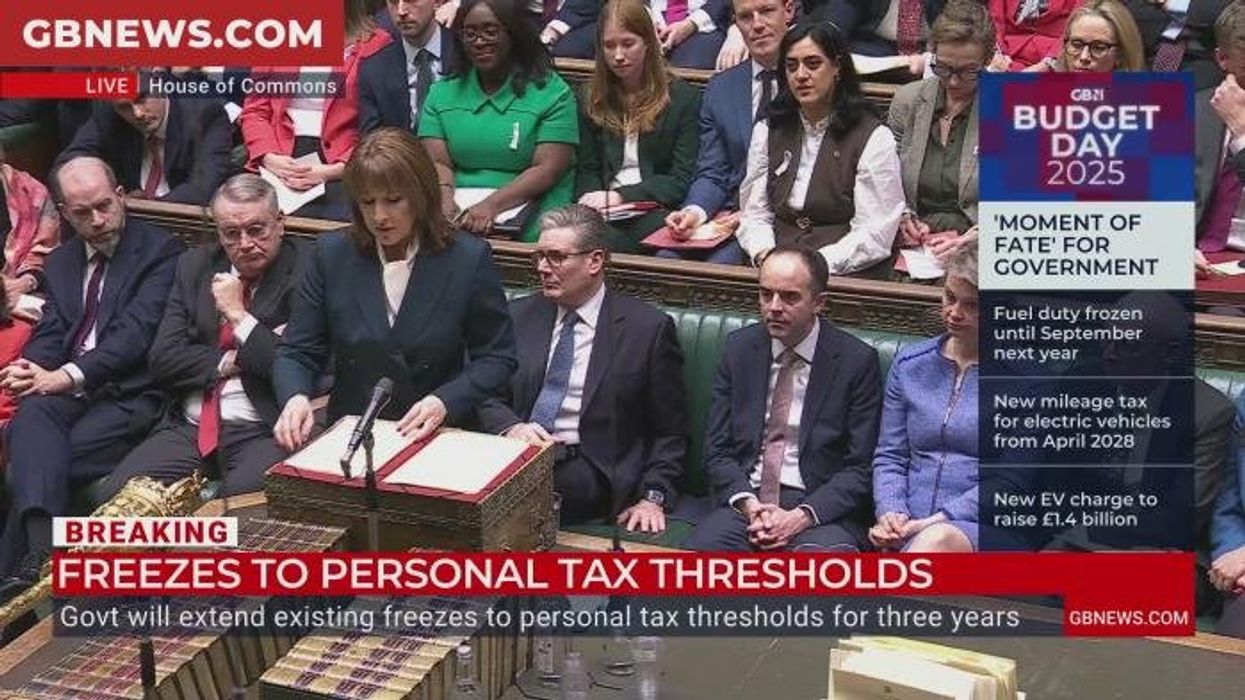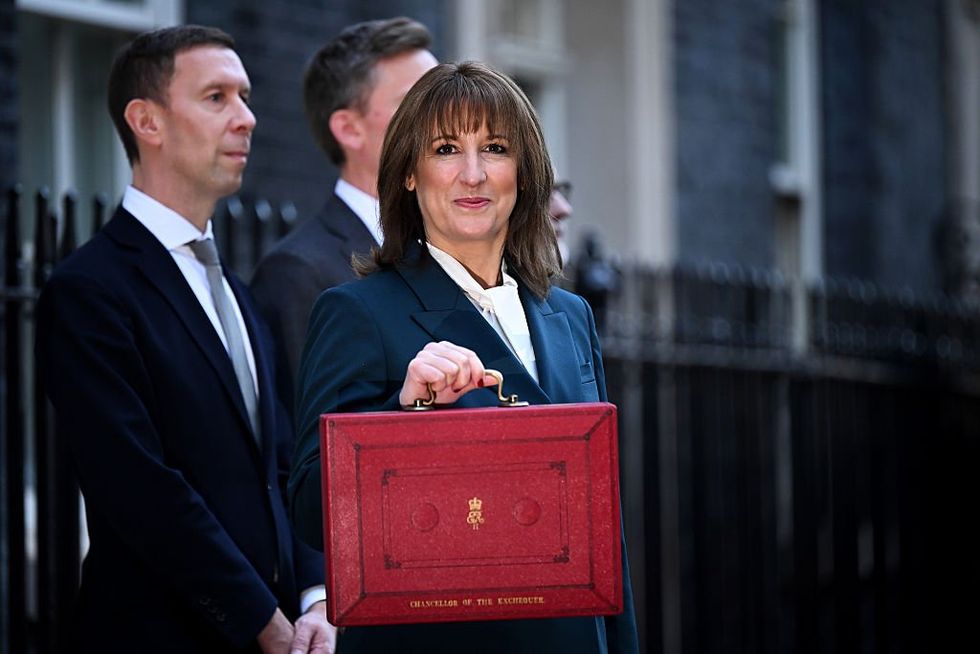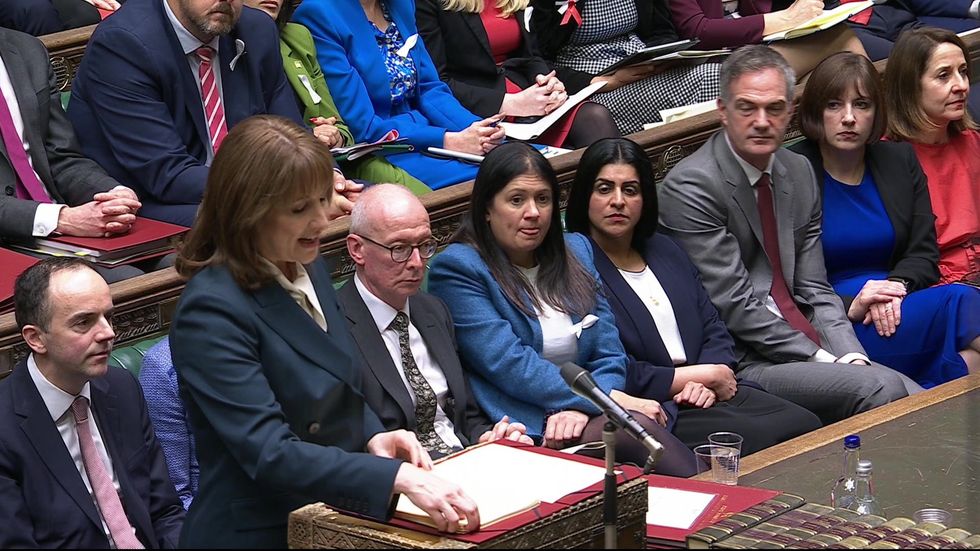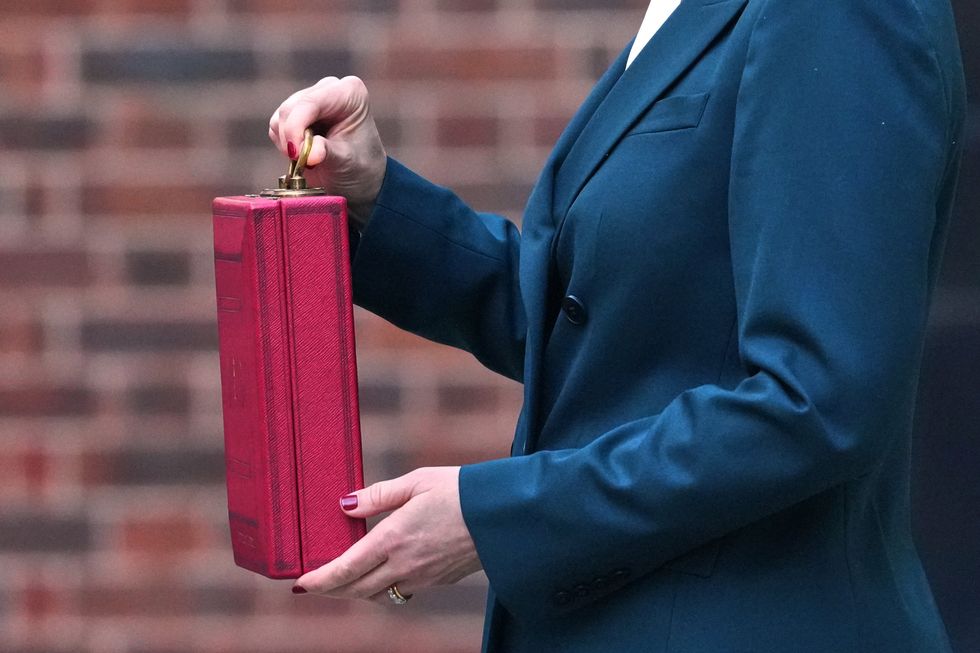Rachel Reeves slaps higher taxes on property, savings and dividend income - what you need to know

GB News

Chancellor announces two per cent rises on property, savings and dividend income in bid to close gap with workers
Don't Miss
Most Read
Chancellor Rachel Reeves used her second Budget in Parliament to announce major tax increases on investment and property income as part of what she described as a drive to deliver a fairer system.
She said the Government would raise tax rates across property, savings and dividend income by two percentage points, marking one of the most significant shifts in the treatment of different income streams in recent years.
Ms Reeves told MPs the current tax structure places an unequal burden on workers compared with those earning money from investments.
She argued that this imbalance had become increasingly difficult to justify and required decisive action.
During her Commons statement she highlighted a comparative example she said demonstrated the scale of the disparity.
Ms Reeves said: "Currently, a landlord with an income of £25,000 will pay nearly £1,200 less in tax than their tenant with the same salary because no National Insurance is charged on property, dividend or savings income."
She said this illustrated why reform was necessary to align taxation more closely across income types.
According to the Chancellor, the changes are intended to reduce the gap between employment income, which is subject to National Insurance, and investment income, which is not.
Ms Reeves said the move would help create a more consistent taxation framework.
She added that different sources of income had, for too long, been treated in ways that placed a heavier burden on workers in traditional jobs.

She announced two per cent rises on property, savings and dividend income
|GETTY
Introducing the increases, she said: "It's not fair that the tax system treats different types of income so differently."
Under the reforms, dividend taxation will rise to 10.75 per cent for basic rate taxpayers and 35.75 per cent for higher rate taxpayers from April, according to Office for Budget Responsibility (OBR) documents published alongside the Budget.
Property income taxation will increase from April 2027, moving to 22 per cent, 42 per cent and 47 per cent for basic, higher and additional rate taxpayers respectively.
The Chancellor said the changes meant she would "increase the basic and higher rate of tax on property, savings and dividend income by two percentage points and the additional rate of tax on property and savings income by two percentage points."
The measures will be phased in, allowing taxpayers time to adapt their financial plans before the full impact takes effect.
Ms Reeves said this approach was intended to give investors and landlords greater certainty over how the adjustments would unfold.
LATEST DEVELOPMENTS

Despite the rate rises, the Chancellor sought to reassure those with modest savings
|PA
Despite the rate rises, the Chancellor sought to reassure those with modest savings.
She said: "Even after these reforms, 90 per cent of taxpayers will still pay no tax at all on their savings."
Her assessment indicates the changes are expected to fall largely on higher earners and those with sizable investment portfolios.
According to Treasury figures, the top tenth of savers will account for the majority of additional revenue generated from the increased savings taxes.
Ms Reeves said the focus of the package was to tackle what she described as entrenched inequalities within the tax base while shielding those holding ordinary savings accounts.
Property sector representatives raised concerns following the announcement.

The Chancellor announced measures hiking taxes on savers
|PA
Industry analysts noted that landlords facing higher tax burdens could choose to raise rents or exit the market, potentially reducing available housing stock.
Observers said it remains unclear how many landlords may adjust their portfolios in response to the measures, though the changes represent one of the most substantial attempts to alter the balance between employment and investment taxation in recent years.
The Government maintains the package is designed to deliver what Ms Reeves described as a fairer distribution of tax responsibilities.
The full impact of the reforms will become clearer as the phased increases are implemented over the coming years.










